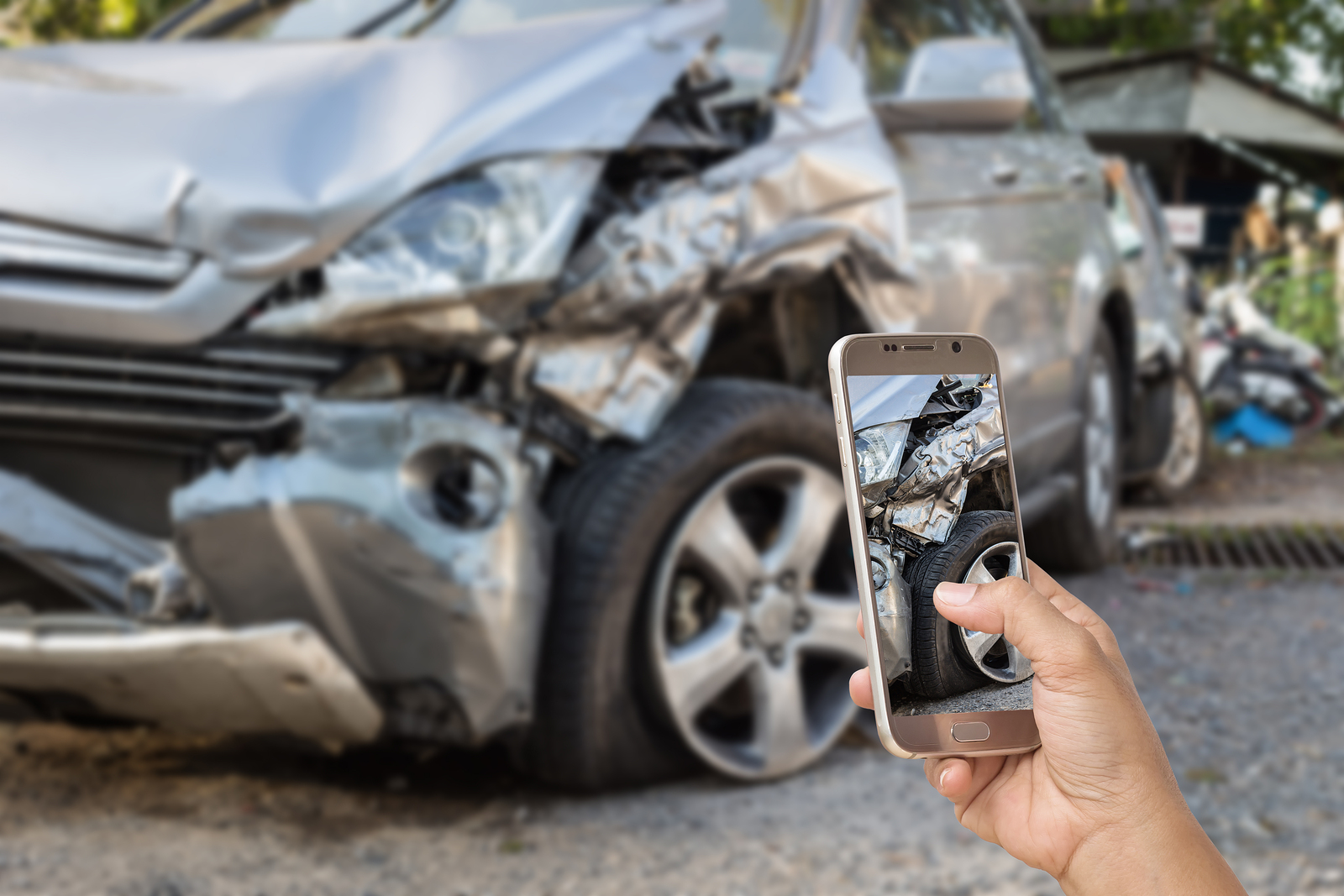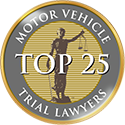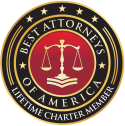
When it comes to car accidents, the vast majority of the attention given by first responders, insurance companies, law firms, and others involved is to any personal injuries arising out of the accident. Fortunately, not all accidents involve personal injuries, but virtually all accidents involve some degree of property damage to the vehicles.
If your vehicle is damaged in a car accident caused by the negligence of another driver, you are entitled to receive compensation from the negligent driver’s insurance company for the damage to your vehicle. At Spaulding Injury Law, our Atlanta car accident lawyers represent injured clients in resolving any vehicle property damage claims as part of our total representation at no additional charge. Below is an overview of how a property damage claim usually works.
At The Scene Of The Accident
The property damage claims process really begins at the scene of the accident. The initial decision for the driver involved is whether or not the vehicle can still be driven safely and legally or whether it should be towed to a body shop or tow yard. If the vehicle has only cosmetic body damage but all lights and systems still work properly then it is usually safe to drive the vehicle home from the scene of the accident. If, however, any lights are not functioning or there is any doubt that the vehicle’s equipment and systems are in proper working order then the vehicle should not be driven from the scene, and a tow truck should be contacted.
Many tow companies have rate agreements with car insurance companies, and you can ask the tow company when you contact them if they have such an agreement with the at-fault driver’s insurance company. If they do, that will make your claim for payment of the tow truck bill and storage fees simpler.
Make sure to take photographs of the damage to your vehicle as soon as you can safely. Photos before the vehicles are moved are best but not a necessity. Take more photos than you think you will need to make sure you document everything.
Is Your Vehicle Totaled?
Once the vehicle is removed from the scene then the issue becomes repairs. Typically, the negligent driver’s insurance company will assign a separate claims adjuster to the property damage claim from the adjuster who is assigned to any personal injury claim you may have from the accident. The property damage claims adjuster will usually send a field representative out to physically look at the damaged vehicle and assess the total value of the damage.
If the total cost to repair the damage exceeds the value of the vehicle, the insurance will consider the vehicle a total loss or “totaled” and will purchase the vehicle from you for fair market value rather than pay for repairs. If the vehicle can be repaired, then the insurance company will be responsible for the cost of the repairs as well as the depreciation in fair market value that the accident has cost the vehicle.
Insurance companies also negotiate rates with auto repair and body shops, and will often try to steer you to their preferred shops. You are not required to use the shops the insurance companies prefer if you have a mechanic or body shop you prefer to use. In fact, it can often be a good idea to have a mechanic or auto body repairman you trust evaluate the damage and provide you a repair quote. Because body shops work on cars that have been in accidents so frequently, the good ones usually know how to explain the repairs needed to an insurance adjuster on your behalf to make sure insurance will cover the full amount before the shop commits to doing the work.
How to Value Your Vehicle
Always make sure insurance approves the repair quote and agrees to pay it before authorizing the work. Under Georgia law, if repairs are done on your vehicle which are not paid for, the repair shop has a lien on your vehicle which they can enforce by keeping your vehicle and not returning it to you until full payment for the work is received. So if you authorize repair or body work before receiving approval from the insurance company, you could be forced to pay out of pocket for any amount of repairs that insurance later objects to as being unreasonable or unrelated to the accident before you can get your car back from the shop.
If your vehicle is a total loss, insurance must pay you the fair market value including your tag and title fee plus any additional considerations which add value to your vehicle. Usually fair market value can be determined using valuations provided by organizations such as Kelley Blue Book, Edmunds, NADA, and similar tools available to insurance companies. Each of these organizations provide tools on their website which enable you to obtain an approximate value for your vehicle in the condition it was in prior to the accident.
By obtaining fair market value reports from multiple sites, you should have pretty good evidence of the value of your vehicle. This can be used to negotiate with the insurance company if their valuation differs greatly from yours.
Usually, however, because of the widespread availability of these vehicle valuation tools online, the fair market value of your vehicle is not a hotly disputed issue with insurance companies. While their valuation will be based on multiple factors including the field adjuster’s report and their own valuation tools, their determinations of fair market value are typically close to those provided by Kelley Blue Book and others if the vehicle data being entered is accurate.
Overall, while it can still be a headache to have to deal with, the property damage claims process is much faster and much more straightforward than the personal injury claims process because repairs needed and vehicle values are much quicker and easier to objectively determine than medical diagnoses and pain and suffering. Thus, there is usually much less to fight about in property claims and much less money at stake than there often is in personal injury claims.
Nevertheless, if your vehicle is damaged in a car accident and you are unsure of your rights or how to proceed or if the insurance company is not treating you fairly, contacting an experienced car accident attorney who can help you through the process is always a good idea.









